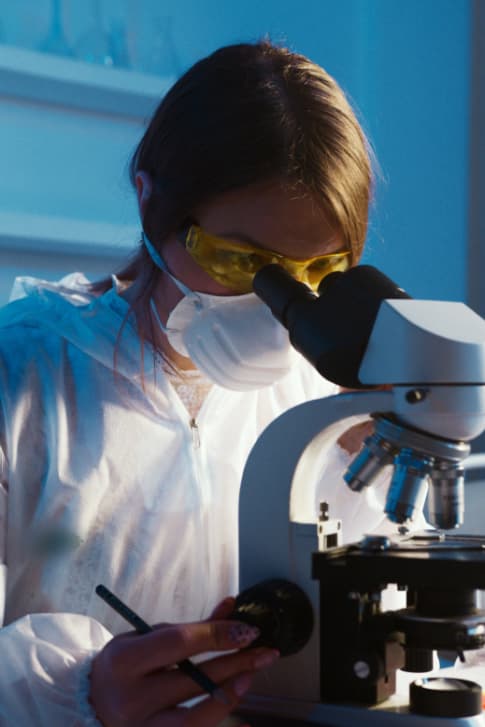Clinical trials in
RARE DISEASES
Clinical trials are the last stage in the development process of medicinal products and medical devices. The main objective of clinical trials is to ensure that the products under development, previously tested and validated in non-human models, have the capacity to perform the desired therapeutic action on the human body. In these trials, researchers study the effects of the product under development on human volunteers, assessing efficacy and safety in the body.
Clinical trials of orphan drugs
Orphan drugs are those aimed at treating highly rare conditions for which there is no satisfactory treatment. It is common for medicines indicated to act on rare diseases to be orphan drugs, due to the lack of knowledge and therapeutic tools surrounding these pathologies.
The development process of an orphan drug is longer, more costly and more complicated than that of other drugs, with clinical trials in rare diseases being a key point in the orphan drug development process.
Its role in updating knowledge and therapeutic evidence on these rare pathologies and its decisive contribution to improving patients' life expectancy and quality of life and mitigating the social impact of rare diseases is also fundamental.

"It also plays a key role in updating knowledge and therapeutic evidence on these rare pathologies and its decisive contribution to improving patients' life expectancy and quality of life and mitigating the social impact of rare diseases.
World Clinical Trials Day
On the occasion of World Clinical Trials Day, AELMHU annually analyses the data on clinical trials at national level, whose information is collected in the Spanish Clinical Trials Register of the AEMPS (Registro Español de Estudios Clínicos de la AEMPS).
The aim of this work is to publicize the research carried out in Spain in the area of rare diseases and to highlight the efforts made by pharmaceutical companies in R&D.
The results collected are organised and analysed based on the parameters of greatest interest: number of trials, number of participants, annual evolution, effect of the pandemic, diseases investigated, presence of minority diseases in clinical activity in Spain, etc.
The information obtained is illustrated in an infographic and disseminated in a press release on 20 May, World Clinical Trials Day.
Check out AELMHU's latest report on clinical trials in rare diseases.